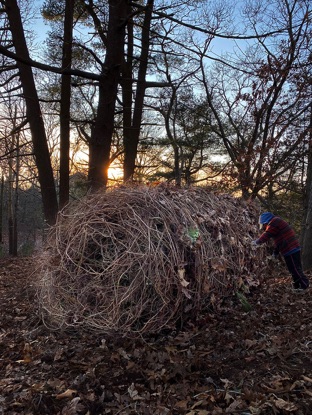Rotundifolia open air studio Shinnecock Hills
Rolled Smilax Rotundifolia Stems and Roots, Sonia
6’ x 6’ x 9.5” January 15 2020
copyright © 2021 Hope Sandrow all rights reserved
The date of the first known travel-related case of the novel coronavirus entering the United States as a three week outbreak of Fowl Pox suffered by almost half of Shinnecock Family Flock - concluded.
“Protecting nature is vital to escape 'era of pandemics” (Note 1).
Miss Jane B. Colt’s gardens vanished long ago into an overgrowth of the native woody vine Smilax Rotundifolia. The stems, armed with sharp thorns (pictured left), attach spiral shaped tendrils to neighboring plants for support. The roots were pulled from the ground by hand, compacted and rolled. To provide open space and light and air for the possibility of her plants to re-emerge from the ground (spring 2020).
WHO stated "preliminary investigations conducted by the Chinese authorities have found no clear evidence of human-to-human transmission of the novel coronavirus (2019-nCoV) identified in Wuhan, China".[62] According to Reuters in Geneva, WHO said there may have been limited human-to-human transmission of a new coronavirus in China within families, and it is possible there could be a wider outbreak.”
Note 1: report composed by IPBES Workshop on BioDiversity and Pandemics



